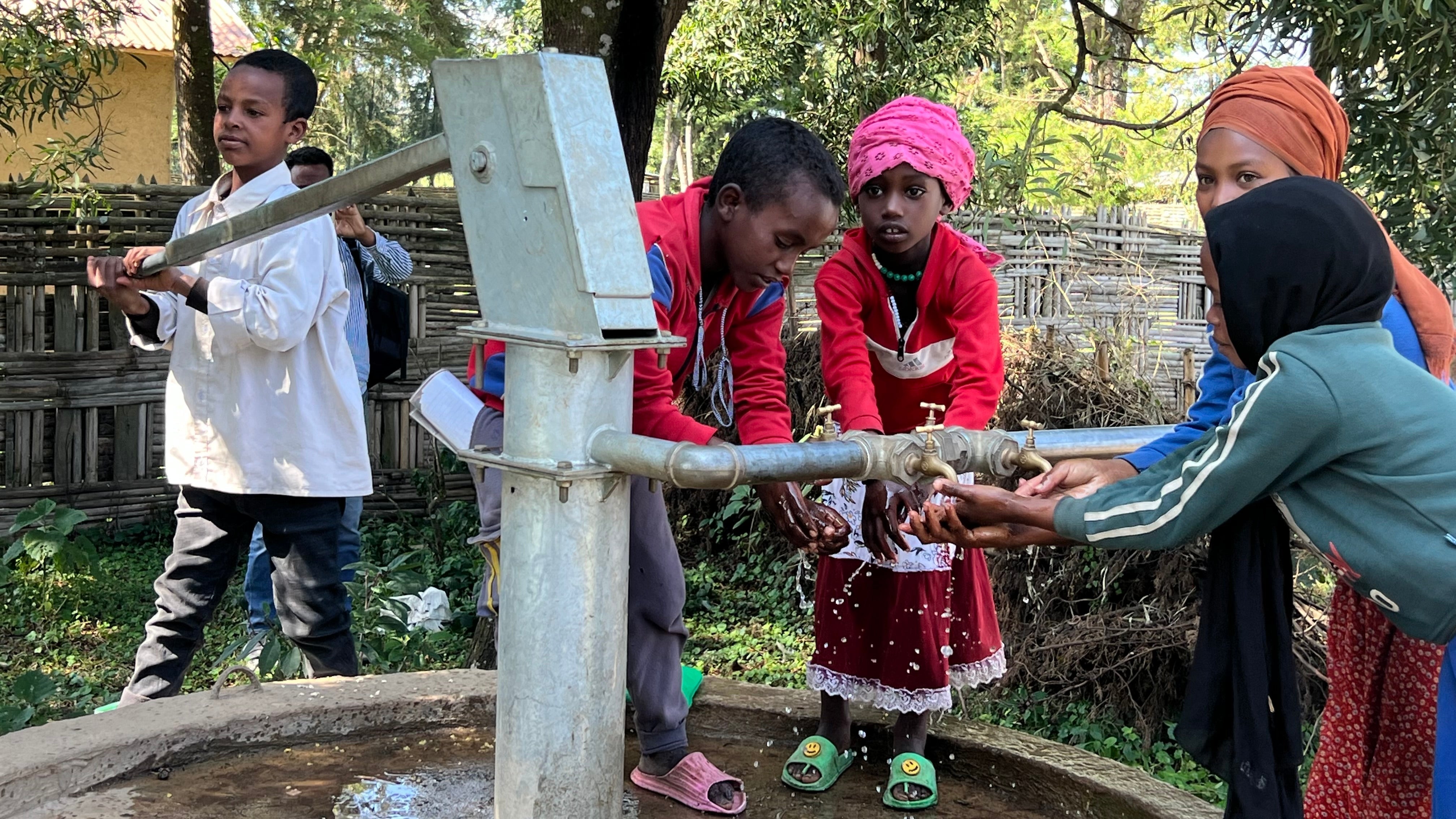
Dirk McCoy, regional director of donor relations for Water For Good shares the story of his visit to Ethiopia to oversee the progress of the program so far.
“Last week I accompanied a few of our major donors on a Vision Trip to Ethiopia, where we visited schools, villages, and churches and spent time with our field office and headquarters staff. Inspired by this McKinsey study showing that basic water investments can yield up to 21 times their cost in community benefits, I approached the trip with my MBA hat on—ready to calculate future savings in time, the value of increased education, reduced medical expenses, jobs created, second-order effects, net present value, and ROI.
But then, on Wednesday I met the elders of the Alach Chafo community in Bensa.
We started by touring their healthy homes, including newly built latrines, and climbed a steep hill (at an elevation of 7,400 feet) to see a gravity-fed tap stand. Our group planned to continue uphill to see the protective spring cap and night storage tank we had built. Yet I found myself drawn to the people gathered to welcome and celebrate with us, so I stayed behind to join them.
I sat with Asfaw Waritu, a worship leader from Bensa Daye. As we talked about our families and children, we took turns playing guitar and singing—I think they even enjoyed my amateur rendition of Stand By Me. As I took in the beautiful mountainous terrain, with its many streams and springs, I realized something: this village had the essentials—housing, food, clothing, and fellowship. But they were still vulnerable.
One of my donors, an expert in food safety at a county health department, had reminded me how fragile their situation was: just one dead animal in the stream or an uphill wash could contaminate the water with giardia, cholera, or E. coli. I asked about the cost of treatment. I was told that transportation to a clinic might cost a dollar or two, medicine a few dollars, stronger medicine $10 or $20, and hospitalization with IV treatment $30 or more—all depending on how strong the child’s immune system was. For perspective, $30 was roughly what one person could earn in a year by harvesting false banana, coffee, or sorghum.
It hit me then: the fear of losing a child to a waterborne disease because of unaffordable or delayed treatment was no different from my fear of my own child suffering a car accident or a serious illness that could drain bank accounts and ultimately their life. Globally, waterborne disease kills 1,000 children daily—four times the toll of childhood cancer. For this village, a single bout of disease could disrupt everything. And tragically, I learned that children here had died in the past.
When the rest of our group returned, the elders shared their story: how new sanitation facilities, improved hygiene practices, and access to safe water had set them on a path to eliminating waterborne diseases. They spoke with pride in their accomplishments, gratitude for our partnership, and palpable relief. Together, we worshipped a good God.
In that moment, I realized something profound: the peace of mind that comes from knowing your children are safe from waterborne disease is priceless. The ROI I had been so eager to calculate earlier became irrelevant. It was abundantly clear that the impact of this work is enormous.
And here’s the incredible part: the cost for a village like Alach Facho, with 200 residents, to achieve this transformation is just $36,000—spread over three years, that’s $12,000 a year.
